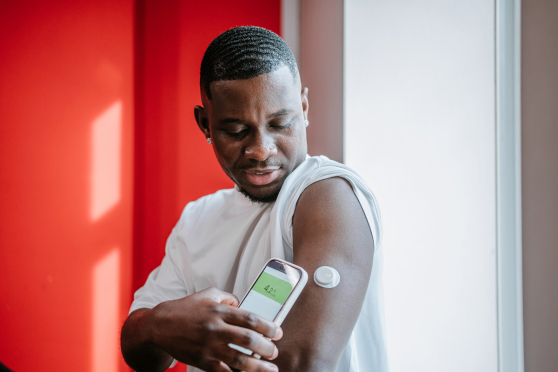A step-by-step guide to preparing for LASIK surgery
Here’s what a person may want to know before getting this laser eye procedure.

Let’s say a person does their research and decides to get LASIK surgery (LASIK stands for laser-assisted in situ keratomileusis).1 They may also see it called laser vision correction surgery.
LASIK can be a great choice for people with nearsightedness (trouble seeing objects far away), farsightedness (trouble seeing objects nearby) and astigmatism (trouble seeing objects both near and far away). Depending on an individual’s visual requirements, the surgery may greatly reduce the need to wear glasses or contact lenses.
What can a person do to prepare for LASIK surgery? Find out some potential ways.
Prepare to ditch your glasses or contacts with LASIK! Get more info about laser vision correction surgery.
1. Understand the costs
LASIK is often considered an “elective” eye surgery.1 That means that someone chooses to get it done, so it won’t be covered by their vision insurance.
A person will want to be prepared to pay for the procedure out of pocket — and it can be expensive. According to QualSight LASIK, the average cost of the surgery is between $1,500 and $3,000 per eye depending on factors like:
- Surgeon
- Type of procedure
- Where a person lives
UnitedHealthcare Vision members can get a free exam and save 20% to 35% on LASIK through QualSight LASIK. But it may be important to do the math beforehand. The total cost can include the surgery and any follow-up appointments.
2. Get an eye exam
Haven’t been to see an eye care provider in a while? A person will want to get their vision tested before they schedule their surgery. That can be to make sure that:2
- A person’s vision hasn’t changed
- How high a person’s refractive error may be (that’s a condition that may make it hard to see clearly3)
- Check for other eye problems
- Measure the thickness of the cornea (that’s the dome-shaped outer layer of the eye)
All these things can make it harder for someone to get LASIK surgery. It’s important to get the “all clear” from an eye care provider before getting it.
3. Schedule a ride home
A person will want to arrange for someone to drive them home after LASIK surgery. That could be with a friend, family member or neighbor. A person’s eye care provider may give them medicine pre-surgery that can affect their ability to drive. Their vision may also be blurry after the procedure.4
4. Don’t use eye products
It’s not a good idea to use any of the following eye products the day before or the day of the surgery:4
- Creams
- Lotions
- Makeup creams
- Perfumes
They can add to the risk of an eye infection. A person’s eye care provider will want to keep the area near the eyes safe and clean.
A person’s eye care provider may also ask them to clean their eyelashes more before the surgery. This is to remove any debris from them. It can also help lower the risk of an eye infection.4
5. Stop wearing contact lenses
If a person wears contact lenses, their eye care provider may tell them to stop wearing them in the weeks before the surgery. (They can switch to their glasses instead.) Contact lenses may change the shape of a person’s cornea, which can affect the results of the surgery.4
6. Review any medications
If a person takes medications that prevent blood clots — like aspirin or other medications — their eye care provider may tell them to stop taking them before their surgery. Also, a person will want to tell their eye care provider about whether they take:5
- Herbal remedies
- Supplements
- Vitamins
These can raise the risk of issues during surgery. An eye care provider may also tell a person to stop taking them before surgery.5
What else might a person want to know about their surgery?
Here are some more questions (and answers) you might want to know before surgery.
- How long does the surgery take? About 30 minutes or less.4
- How long does recovery take? Most people’s normal vision may return in 1 or 2 days — but for others, the full effects of LASIK may take between 3 to 6 months to take hold.6
- What should a person do right after surgery? After that ride home (see #3 above), it may be a good idea to take it easy. A person’s eye care provider may give them a pain reliever and/or sedative. They will also tell a person not to rub their eyes — even though they may feel like they’re itchy or burning. For the first 6 hours after surgery, try to keep the eyes closed as much as possible.6
- When will a person be able to stop using glasses or contact lenses? It could be as soon as a day or 2 after surgery, though vision may still not be perfect. It may also take up to 6 months for the eyes to fully heal.6 About 90% of people who have LASIK end up with between 20/20 and 20/40 vision and don’t have to wear glasses or contact lenses anymore, according to the American Academy of Ophthalmology.2
What are some potential complications to look out for? In rare cases, temporary or permanent complications may include:6,7
-Blurry, hazy, foggy or double vision
-Dry or irritated eyes
-Infection or scarring of the cornea (clear, dome-shaped surface that covers the front of the eye)
-Issues with the cornea’s shape
-Sensitivity to light
-Small patches of red or pink on the white of the eyes
-Trouble seeing or driving at night- What should a person do if they’re having complications? Make an appointment with an eye doctor or primary care doctor right away. They may be able to figure out the issue and find a temporary or permanent solution.
Considering whether LASIK surgery might be right for you? Schedule a free exam to find out.
Sources:
- LASIK surgery: Is it right for you? Mayo Clinic, June 2023
- LASIK – laser eye surgery American Academy of Ophthalmology, August 2024
- At a glance: Refractive errors National Eye Institute, December 2024
- LASIK eye surgery Mayo Clinic, August 2023
- LASIK: Before your surgery Kaiser Permanente, July 2024
- LASIK eye surgery MedlinePlus, January 2024
- Facts about LASIK complications American Academy of Ophthalmology, August 2024


